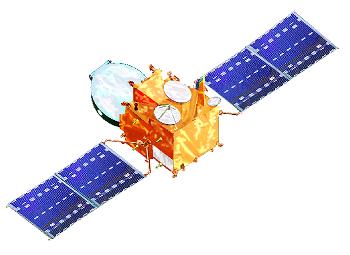The Israel Space Agency in the Ministry of Science and Technology aims to expand Israel's comparative advantage in the field of civil space and place it among the five leading countries in the world in the field

The Israel Space Agency in the Ministry of Science and Technology aims to expand Israel's comparative advantage in the field of civil space and place it among the five leading countries in the world in this field. The agency aims to reach the level of parallel space agencies in the world with the goal of reaching within a few years a situation where the space field in the civil-economic-scientific aspect of Israel will be similar to its position in the security space field.
In order to realize this goal, the agency's goals for the coming year are:
- Promoting the development of satellites and systems in the field of space.
- Expansion of space infrastructure.
- Expanding international cooperation in the field of space.
The agency will invest the resources in the following channels:
- Space research in academia.
- Research and development of small and lightweight satellites.
- International collaborations.
- Education in the community (to encourage the general public and especially young people to engage in the fields of science and space).
- Recruiting consultants and special experts to work in the agency.
Existing and ongoing projects
• ¬¬The Venus satellite project and the multi-spectral camera
In 2005, the agency signed an agreement for cooperation with the French Space Agency (CNES) for the design and construction of an Israeli-French microsatellite called VENµS weighing about 200 kg. The construction of the satellite in the aerospace industry is nearing completion and the ambition is that it will be launched in 2014 and the scientific mission on it will last about two years.
As part of this project, the Israeli company Alup is developing a dedicated scientific payload that includes a multispectral camera with 12 different wavelengths, a ground station for receiving and processing images from the satellite and a technological platform that includes an electric propulsion system. The camera will be mounted on top of the Venus satellite and will be used to identify and locate water contamination in the Mediterranean region.
The other technological task of the project is to prove the ability to maneuver and stabilize the satellite and change its trajectory.
• Joint research with Italy
As part of the Israel Space Agency's collaboration with the Italian Space Agency (ASI), this year evaluations began for joint research on a number of satellites, which includes the development of a 250-wavelength camera that will make it possible to detect impurities and toxic substances in the air. The project should be completed this year. Half of the project is financed by Italy and half by Israel.
• Project with NASA
At the beginning of 2009, the agency submitted a proposal to NASA for the use of the lightweight Israeli TECSAR satellite on which a camera will be mounted to photograph the planet Nega. Due to the fact that the star is covered by toxic clouds, they have not been able to photograph it with normal means so far. A synthetic key radar camera developed by the Americans weighs a ton, which prevented its launch due to the weight of the existing satellites. Israel won the technical stage of the proposal, but in the stage of deployment to the space missions, the Israeli satellite did not finally enter the mission. However, the agency and NASA are now considering jointly developing a satellite of this type.
Agreements signed in 2011
• In 2011, two significant international agreements were signed: with the European Space Agency (ESA) and with the Russian Space Agency.
• The agency is in talks with Brazil and Kazakhstan to sign agreements.
More plans
- The agency submitted an application to host the World Space Convention in Israel in about three years. In April, the heads of the organization will announce the country chosen to host the convention. Leading space agencies expressed their support for hosting the conference in Israel and announced their willingness to participate in it.
- Research projects at the start - Weizmann Institute, Technion, SpaceIL
- Background and data on the space industry in Israel and the global space market
- The space industry in Israel numbers about twenty companies in the branches of developing and manufacturing satellites, operating satellites, selling communication and remote sensing services, and selling ground equipment.
- The reports of the research company Futron from recent years showed that Israel is in eighth place among the countries involved in space according to a competitiveness index that is considered reliable.
- To date, about 2 billion dollars have been invested in space infrastructure in Israel, some of it in physical infrastructure.
- Israel has 13 satellites, nine of which are currently orbiting in space, of which at least six are observation satellites and three are communication satellites. So far there has been 100% success of the satellites already in space.
- The global space market is estimated at 250 billion dollars. The size of the commercial satellite market, including the applications derived from it, is about 120 billion dollars, most of which are communication satellites, and about 2 billion dollars of that for remote sensing systems. An analysis conducted in 2010 by Eyal Rosner, a business development consultant hired by the Ministry of Science and Technology, showed that the civilian market potential for Israeli companies is approximately 6-4 billion dollars per year.
